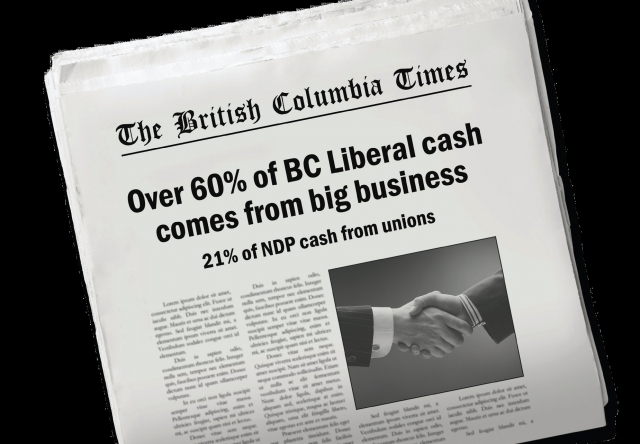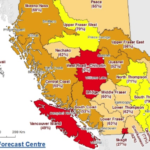COMMENT: Making the case for electoral finance reform
Catching a politician with their hand in the cookie jar is far more juicy than actually building a better cookie jar, so it’s little surprise that proposing changes to BC’s electoral finance laws is hardly seen as sexy.
But if voters truly want accountability and transparency restored to BC politics, it starts with prying the fingers of BC politicians off the wallets of large corporate and union donors, whether it’s at the local or provincial level.
It may shock some, but in 2009 the BC Liberals outspent the record-setting spending of the 2008 Obama campaign on a per registered voter basis. While the comparison is admittedly a little cute, consider that over the last 10 years the BC Liberals out-raised the NDP two-to-one or $76.7 million to $38.4 million.
Numbers which confirm one truism about politics: money wins elections.
According to a post-election analysis by the US-based Center for Responsive Politics, over 90 per cent of US House and Senate races (decided by November 5, 2008) were won by the candidate who had spent the most money. The same holds true for the last three BC elections.
And if even more proof was needed that the laws governing the financing of BC political parties are out of whack consider the recent $500 fundraising reception headlined by Premier Christy Clark at the Calgary Petroleum Club.
The BC Liberals not only sought, but the Premier lent her name, presence and office to an event soliciting donations from individuals who are likely ineligible to vote in BC.
Imagine the outcry on Howe St. if a future Premier Adrian Dix attended a similar dinner with members of the Canadian Labour Congress in Windsor, Ontario?
Just a glance at the BC Elections Act should make it abundantly clear why more and more citizens distrust BC’s political system.
There are no real rules when it comes to political financing in BC: no dollar limits, no geographic limits. Corporations and unions can donate as much as they want, even if they don’t do business in BC.
And while banning these donations is a start, without additional reforms even this would be insufficient to clean-up BC politics. A ban on corporate and union donations – without an accompanying cap on personal donations – will prove little more than a street hustler’s three shell game.
Simply put: the rules regarding how parties and candidates are financed in BC needs an overhaul, not a lube job.
Only through comprehensive reforms can BC voters truly have confidence that the decisions made in Victoria and at city hall are free of questionable corporate, union or outside influence.
Shamefully, BC is a laggard when it comes to electoral finance reform. Seven out of ten provinces have implemented a variety of measures intended to clean up the political system in their respective provinces.
So is it any wonder that voters are left shaking their heads asking: who really runs BC?
Over the past weeks, voters across the province witnessed the unseemly sight of large-scale developers underwriting the campaigns of local candidates running in municipal elections. Following Saturday’s vote many of those candidates now hold office.
In 2010, the largest single donor to the BC Liberal Party was Great Pacific Capital Corporation (read Jimmy Pattison) at $208,000. For the NDP it was $157,770 from the BC Government Employees’ Union. No other political party in Canada came close to hauling in donations of that size.
And no matter their protests to the contrary, there are strings attached to this largesse.
As U.S. Rep. Barney Frank once noted: “politics is the only profession where you are required to take money from strangers and pretend that you don’t owe them anything.”
But the devil to meaningful electoral finance reform will be in the detail. Tradeoffs will need to be made. Would a cap on individual donations differ if there were public allowances for political parties or should public funds be used to reimburse the election expenses of candidates are just two of those issues.
Yet, one fact is as bright as day: those who must play by the rules shouldn’t be the people who can also gain a political advantage by setting the rules.
Whether it’s a Citizen’s Assembly or some other independent body the BC government must show the political courage to delegate the responsibility for overhauling BC’s antiquated electoral finance laws to someone other than themselves.
Such an approach is the best way to unite British Columbians behind some of the more divisive questions surrounding these issues.
Ultimately though the choice for BC is clear: a system where companies and unions are left to believe that you have to pay to play or a system that is answerable solely to BC voters.
Dermod Travis is the executive director of IntegrityBC.
























